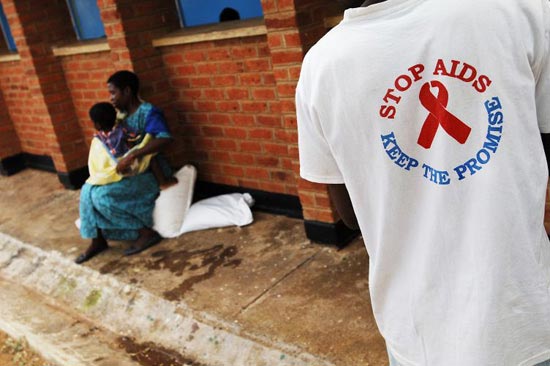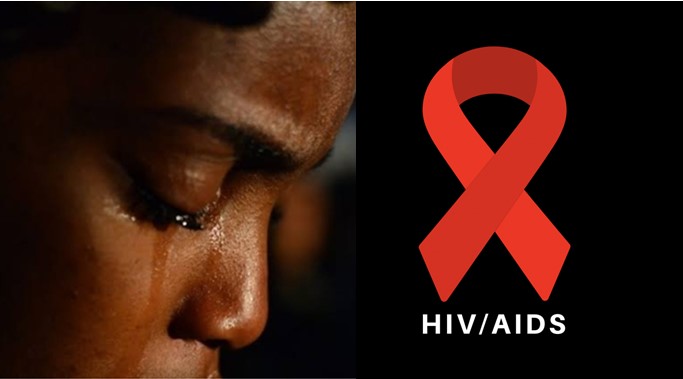As HIV and AIDS pandemic continues to wreck havoc in Malawi, Muslim traditional leaders in the southern African nation have ganged up to “eradicate” some cultural practices which are said to be fueling the spread of this deadly disease in the highly impoverished country.
“There are some cultural beliefs and customs which we have allowed to take root in our societies since time immemorial,” Senior Chief Kadewere from a predominantly Muslim south told the media.
“These include forcing teenage boys who are straight from initiation ceremonies to sleep with teenage girls after puberty. These girls are also forced to have sexual intercourse with older men after puberty or after going through initiation ceremonies,” he added.
Malawi has one of the highest HIV and AIDS prevalence rates in the sub-Saharan Africa with women and children bearing much of the brunt.
Poverty has been singled out as the main factor aggravating the spread of the disease.
Nevertheless, outdated traditional customs have been a stumbling block in the face of efforts to eradicate HIV and AIDs.
“As times have evolved, we have discovered that these customs and beliefs are outdated and can no longer be entertained. These cultural practices are the ones aiding the spread of the HIV and AIDS pandemic in most of the societies in this country,” said Kadewere.
“We can’t allow these to continue particularly at this time when we are struggling with the pandemic. These beliefs have put the lives of women and girls at risk of contacting the pandemic.”
Therefore, Muslim traditional leaders decided to shoulder the responsibility of spreading awareness about the dangers of such practices, spreading true values of Islam.
“It is for this reason that as Muslim traditional leaders we have taken the lead to sensitize our communities on the dangers of these practices. As custodians of cultural values, we have taken this initiative to fight against these beliefs,” said Kadewere.
“We believe that as traditional leaders, we have a moral responsibility to guide our subjects on proper conduct and life styles particularly at this time, when the HIV and AIDs pandemic shows no signs of abating.”
The traditional leader said chiefs were being mobilized to hold sensitization meetings with their subjects and faith leaders who include Christians to raise awareness on the risks of these cultural beliefs.
“The traditional leaders and faith leaders are taking these messages to their followers through Mosques and Churches. Since we launched this initiative, we have not heard of much of these cases. Almost everybody seems to be aware of the consequences. This initiative has also reduced numbers of early pregnancies among girls. We are on course to rid our societies of these practices.”
Muslim efforts have been praised by key stakeholders in the fight against HIV and AIDS in the country.
“This is a step in the right direction. The move Muslim chiefs have taken mean a lot in the fight against the pandemic.” Mara Kumbweza Banda, National Chairperson of the National AIDS Commission (NAC), told the media.
“Chiefs have an influence over their subjects and therefore the importance of this initiative can’t be overemphasized. We highly commend this development.
“What’s quite pleasing is that these traditional leaders also have an influence in the Muslim community which means that we are tackling this problem from a religious perspective as well. As a commission, we stand in solidarity with them as we work to reduce risks of women and children and above all of the whole humanity,” said Kumbweza Banda.
“It is high time we shed off some of our beliefs and customs mainly those which are harmful to the young children and women. We need to take precautionary measures in our societies, if we are to minimize the spread of HIV and AIDS.”
Islam is the second largest religion in the country after Christianity. Muslims account for 36% of the country’s 16 million population.
The World Bank rates Malawi as one of the World’s poorest nations whose majority poor struggle to survive on less than US$1 a day.
“The resistance from some quarters is very strong. However, we are motivated by the level of support that we are getting from the communities,” said Kadewere.
“We are going to achieve what we are intending to do against all odds. We are not going to rest until the battle has been won.”
His counterpart, Traditional Authority Nkalo agrees that in the past, these practices were a “way of life” in his area.
“Before this in initiative was rolled off, these practices were a way of life. People would do this for fun. But in the long run, people have realized that of the harm this was causing to the communities, that’s why most of them are in support of this undertaking. These practices are slowly fading away,” Nkalo told the media.




